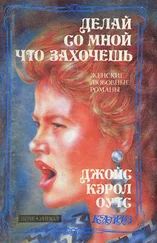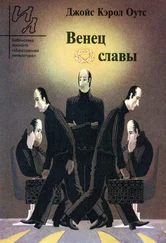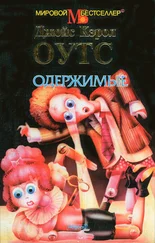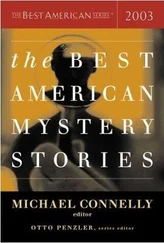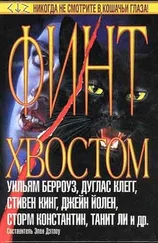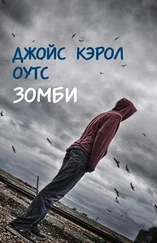The Intensive Care nurses are particularly kind. She will remember their names, Rhoda, Lee Ann, Cathy, she will want to thank them once the vigil is over.
Of course she has visited many relatives, friends in the hospital in her lifetime. She is not young: sixty-one. She has seen many people die, and most of them elderly and infirm—as her husband is not.
Not elderly, at sixty-seven. Not infirm!
Whitey has not been in a hospital for decades. He’d boasted. Appendicitis when he was thirty, once in the ER when he’d broken a wrist in a fall (in fact, he’d lost his footing on steps, carrying a heavy suitcase: an accident). Good to avoid hospitals, Whitey liked to joke. People die in hospitals all the time.
Edgy laughter, at Whitey McClaren’s jokes.
She smiles, recalling. Then wonders why she is smiling.
Something slipping from her shoulders. One of her daughters catches the thick woolen sweater before it falls to the floor.
Oh, Mom. You’re exhausted. It’s not helping Daddy, or any of us, wearing yourself out like this.
Let me drive you home. We will come back in the morning.
Daddy will be all right, Mom. You heard the doctor—he has “stabilized.”
She is thinking: if they could die at the exact same moment, then it would be—well, not good; but nowhere near as bad as if one or the other dies first.
Terrifying, to think of Whitey dying first. How will she endure, the remainder of her life without him!
Yet worse, if she dies first, and Whitey is bereft…
Hiding his face against her throat. In his big, damply-hot arms. Stricken with love for her, clumsy in speech that is sincere and not joking, bantering. Oh. I love you.
She tells the children: if they stay at the house during the emergency, Whitey would like that. When he comes home.
(Maybe tomorrow? Day after tomorrow? Considering that his condition has stabilized. )
Strange, the daughters are not girls any longer. Beverly, Lorene. Well, you could say that Sophia is still a “girl”—could be mistaken for a girl in her early twenties. Younger.
(She feared for Sophia who did not seem to be maturing as the other girls had. There was a schoolgirl earnestness about Sophia, a defiant sort of naivete, that worried her mother even as [she sensed] it annoyed the older sisters.)
(And how old is Sophia? Tried to recall when Sophia had graduated from college—Cornell, after transferring from Hobart Smith.)
(Oh, it is confusing, frightening: which year this is, which month; how old they are all becoming, like heedless tobogganers rushing downhill through the blinding-white snow of their own, finite lives!)
Still, managing to smile. At the nurses, at the girls’ strained faces, at poor dear Whitey whose swollen and distended mouth can’t smile in return at her.
(And where is Thom? He’d been here earlier. And Virgil.)
(Well. You don’t expect Virgil to stay in one place for long. What has Sophia said of her brother— Attention deficit disorder. Given a spiritual spin .)
No wonder the boys aren’t here. Somewhere in the hospital probably, but not right here.
Both Whitey’s sons were frightened. Seeing their father so helpless-seeming, somehow crooked in the high hospital bed amid a tangle of beeping machines and a powerful smell of disinfectant, and his face burnt-looking, battered and swollen; his eyes not exactly shut but not open, and not seeing. Dread word stroke. Dread words Intensive Care, respirator. Thom’s eyes had misted over as if in pain and Virgil’s eyes had narrowed to slits as if a bright light were shining into his face.
With a mother’s sharp eye she’d seen how each son swallowed hard as a way of not sobbing aloud.
Terror of a (grown, adult) child seeing his parent so diminished.
You want to spare them such shocks. Fleeting thoughts through her life as a mother, if she could hide away somewhere, when mortally ill. If she could prevent their seeing, their knowing until it was all over— fait accompli.
Her own mother had sent away her children, in her final days. Vanity, desperation. Don’t want you to see me like this.
But John Earle is not mortally ill, in fact. The facial injuries have nothing to do (it seems) with the stroke and are (it seems) superficial.
Angry red swellings on his face, throat, hands. As if some creature had sunk its beak into him. How many times?
She would wonder what has caused these curious injuries. Except in her distracted state she is capable only of smiling.
Smiling as an act of will. Smiling as an act of courage, desperation.
Giving Whitey’s hand a gentle squeeze as you urge a child. Darling! We are all here, or almost. We will stay until they make us leave.
(Was that so? Would the hospital make them leave? Intensive Care? When the day shift ends?)
It is just a coincidence. She thinks.
Tried to bring up the subject with Whitey, the other day.
The Subject. No!
Of course, Whitey reacted with his (usual) panicked joking. Making a (comic) fuss over the coffee machine. Pretended not to hear.
Just the two of them now in the sprawling house on Old Farm Road that had once been the very center of—everything! You could count on a pack of kids occupying the premises at any time. Five children, five sets of friends. (Well, that wasn’t accurate perhaps. By the time Virgil was old enough to bring friends home, Thom was too old to wish to bring his friends home; not to mention those girlfriends of Thom’s he hadn’t dared bring home.) How many for supper? How many ?—Whitey pretended to be exasperated but (really) he’d loved the house bustling with life.
Those years. You’d think would go on forever. Parents of the kids’ school friends calling the McClarens to see where their children were, and usually they were there, at the sprawling house on Old Farm Road.
And now, where?—where had all those kids, all that noisy life, scattered?
Last to leave home had been Sophia, who’d had only two or three close girlfriends. And Virgil, who’d had a motley assortment of friends, weird friends, who’d come and gone, and seemed not to count. So the diminution, the loss, had been gradual, not abrupt.
Why on earth is she wiping tears from her eyes! It is not like the children’s mother, to alarm them.
For after the terrible shock of the emergency, after the hours of surgery, Whitey was all right .
Thinking what they need are children who live in distant cities and will come to visit them, bring their grandchildren and stay.
It’s a fact: when your children live nearby they never stay in the house any longer. Visit, yes. Come to dinner maybe. For a few hours.
Then they go home. Their home is elsewhere.
She is trying to explain this to Whitey. How sad she is, how frightened, their home is slipping through their fingers.
(Is this a joke? Squeezing her husband’s limp cold fingers trying to galvanize them into life.)
What an odd-matched pair. Jessalyn so quiet, and Whitey so— Whitey.
Yet often when they’re alone together it is Jessalyn who speaks to Whitey earnestly and persuasively, at length. No one would believe how in her quiet voice Jessalyn explains to her husband how he should reconsider a decision he has made impulsively. She will say Darling, please just listen. I think you need to reconsider…
Whitey has never disagreed with Jessalyn. He has never argued with her. Though Whitey McClaren can be curt and dismissive with others he has never so much as interrupted his wife in fifty years.
In fact he loves to be corrected by her. Chagrined, humbled by her. It is delightful to him, to be proved wrong by his dear wife.
Читать дальше

